20 Epoxy Flooring Ideas With Pros And Cons DigsDigs

Industrial Kitchen Flooring Epoxy floor, Kitchen flooring, Cool kitchens
Advantages of an Epoxy Kitchen Floor. Kitchen floors go through a lot of wear and tear over the years. Between spills and drips, heat and dropped plates utensils, as well as the constant foot traffic, the flooring in this space needs to handle multiple stresses and look good all while doing so.The floor needs to be durable and long-lasting.. Balancing style, functionality, and comfort is the.

Epoxy Floor Coating Kitchen Flooring Guide by Cinvex
The Advantages of an Epoxy Kitchen Floor. Getting your kitchen floor renovation started and looking for the perfect coating? An epoxy coating offers you several advantages, both functional and aesthetic. 1 - AESTHETIC.
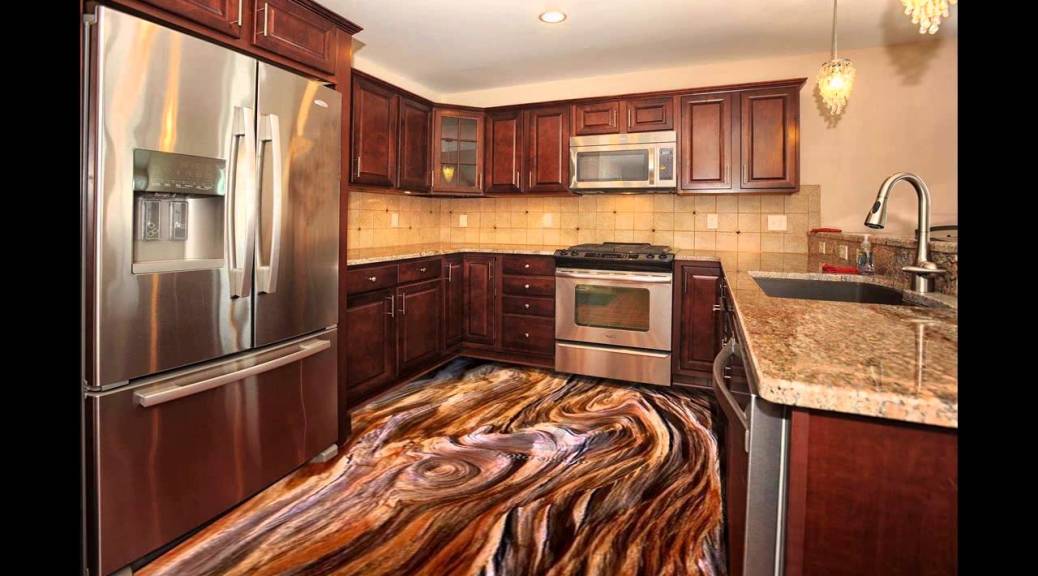
Best 3D flooring images with epoxy coating for kitchens 2019
Industrial-grade Flake Floor Kits from Leggari are most popular in garages and shops because of their first-class chemical resistance and durability - many times stronger than the epoxy paint one might find in a big box store. These floors are easy to install and easy to maintain, making them a great choice for concrete garage floors.

Commercial Kitchen Epoxy Flooring Flooring Site
Characteristics of true epoxy floor coating : Two-part product in which resin is mixed with hardener/activator. Will be labeled "100 percent solids". Costs are typically $200 or more per kit. Often applied in conjunction with vinyl paint chips. Dries fully hard in no more than 24 hours. Extremely smelly to apply; adequate ventilation is a must.

Karl Trend Epoxy Kitchen Floor Over Tile A Durable And Stylish Upgrade For Your Home
Durability. Distinctly valued for their durability, epoxy floors have a longer lifespan than many other floor types. Concrete is the only material that beats it, but it needs to be properly sealed and maintained. Besides, an epoxy floor coating required concrete beneath it anyway. Epoxy floor coating makes renders concrete exceptionally durable.
20 Fabulous Epoxy Kitchen Floor Residential Home Decoration and Inspiration Ideas
Discover the pros and cons of an epoxy kitchen floor. It is easy to install, clean, and care for, but also expensive, noisy, and cold. This floor comprises epoxy resins, fillers, additives, hardeners, and low-volatile organic compounds. The composition forms a rigid and durable material, thus perfect for kitchen flooring.

Epoxy Floor For Kitchen Epoxy Floor Austin TX ATX Stained Concrete Commercial and
Fill any cracks or holes with concrete filler and allow it to dry. Then, mix and apply an epoxy primer to your floor using a nap roller and let it dry for 12-24 hours. Use a nap roller to apply 2 coats of epoxy, letting it dry for 12-24 hours between each coat. Finish with a top coat if necessary. Part 1.
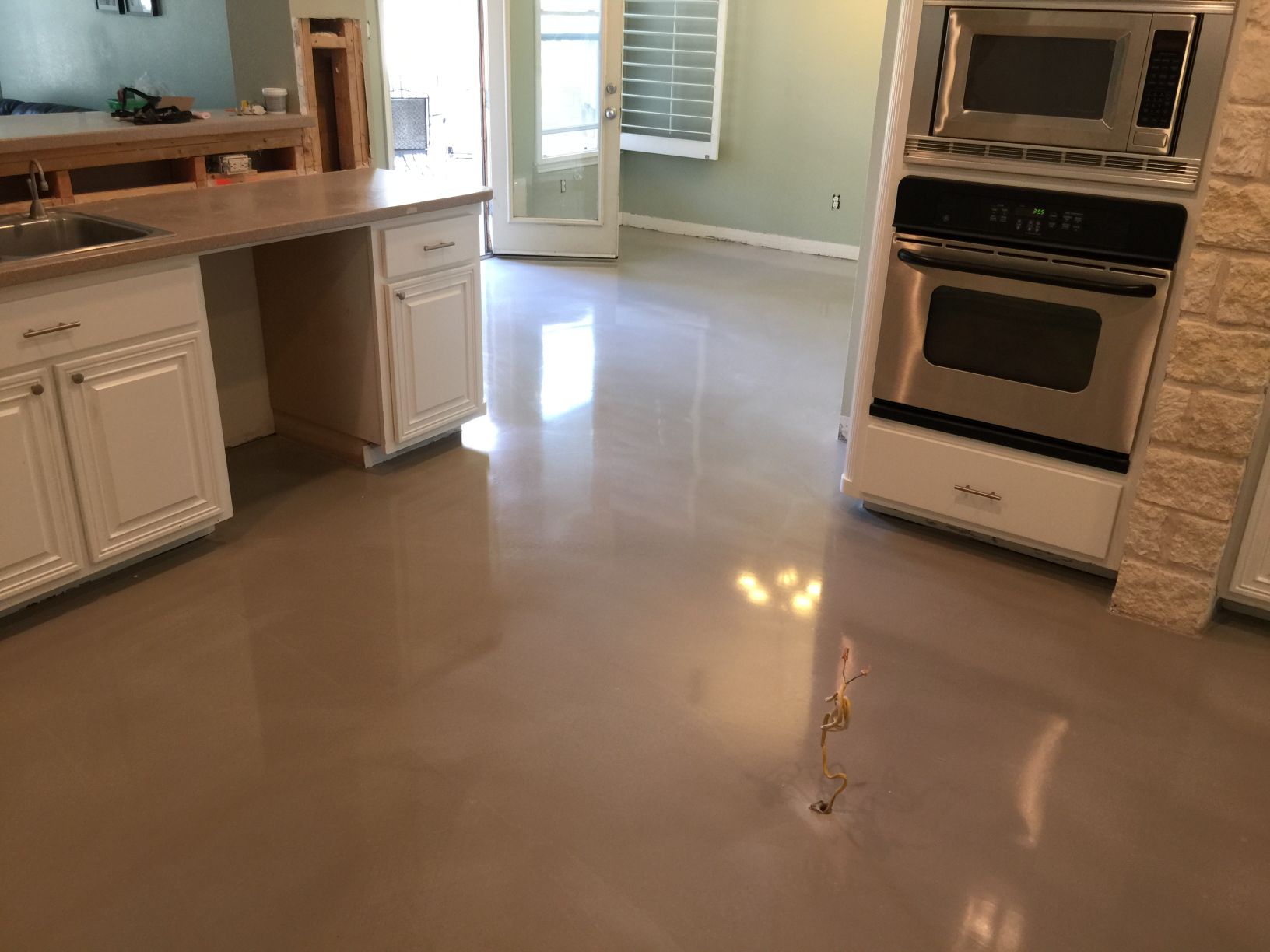
Epoxy Flooring Epoxy Can Sure Add Distinctiveness Nhyrvana
Rock hard, durable, scratch & impact resistant to 15,000 psi, five times stronger than concrete. Thickness of 100 mils or more, creating an extreme 3D effect. More than fifteen times thicker than most epoxies on the market. Quick application, ready to use in as little as 36 hours and 100% odor-free.
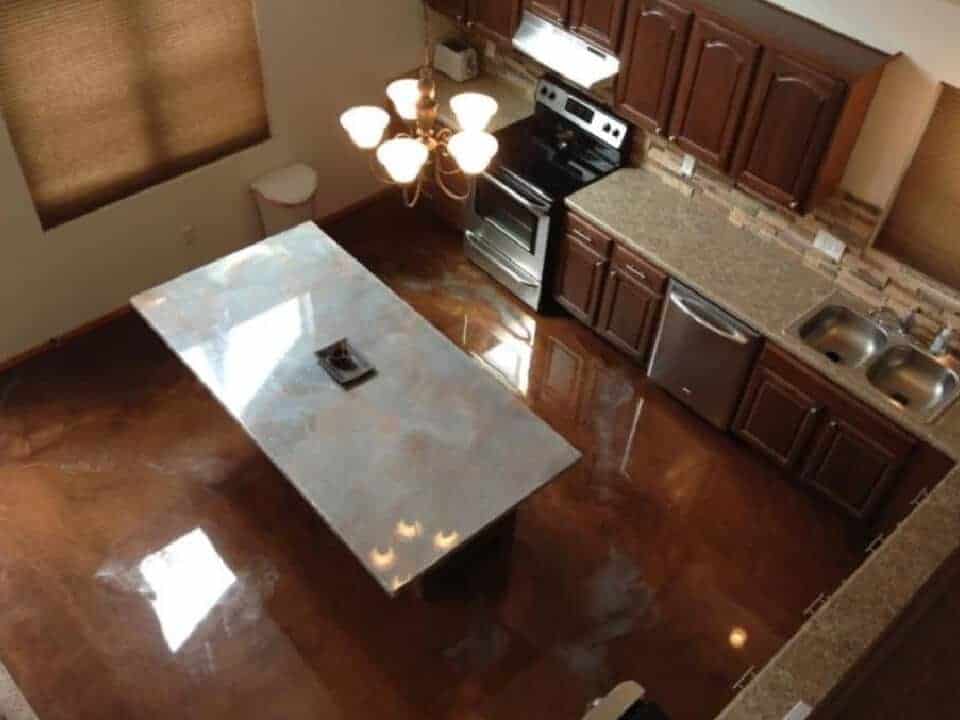
The Benefits of Epoxy Flooring for Commercial Kitchen Floors
Once the surface is clean and dry, you'll need to apply an epoxy primer. The primer will help the epoxy adhere to the floor and will also improve the durability of the finished product. After the primer has been applied, you're ready to mix the epoxy. Remember, epoxy comes in two parts - a resin and a hardener.

White Epoxy Kitchen Kitchen flooring, Epoxy floor, Epoxy floor designs
Epoxy flooring is a great choice for kitchen floors. It is highly durable and long-lasting. Epoxy is spill-resistant and does not stain. Epoxy also has a lot of different decorative choices available, so you can easily find a type of epoxy floor that will complement your decor. Here are 5 great epoxy kitchen floor ideas you're sure to love. 1.
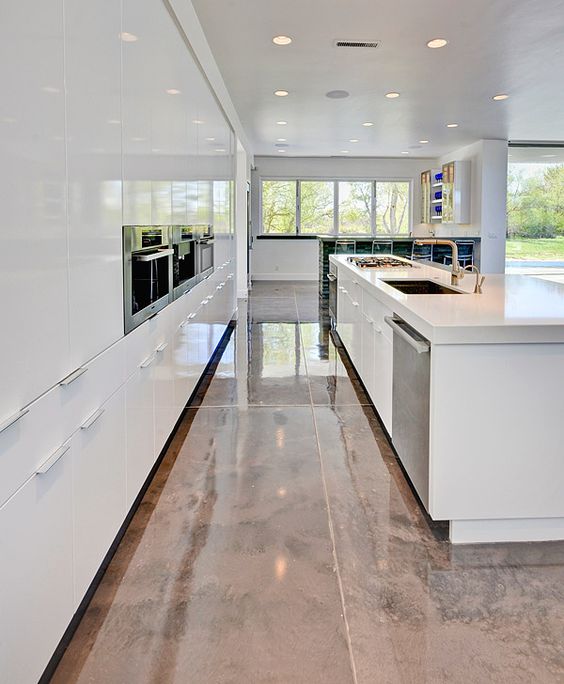
20 Epoxy Flooring Ideas With Pros And Cons DigsDigs
Floor Size. Epoxy flooring, which is a thicker version of epoxy paint, must be mixed, poured, and smoothed. Professional epoxy application costs between $3 and $12 per square foot, and DIY epoxy.

Glowinthedark resin kitchen floor is neat. Epoxy resin flooring, Epoxy floor, Kitchen flooring
The downside is that epoxy flooring labor costs add about $1-$7 per square foot to the price. DIY Epoxy Flooring. For the DIYer, epoxy costs as little as $2 to $5 per square foot for the materials. Typically, DIY epoxy floor kits include epoxy, a mixing paddle, a paintbrush or roller, a top coat, and sometimes decorative flakes. You need to.
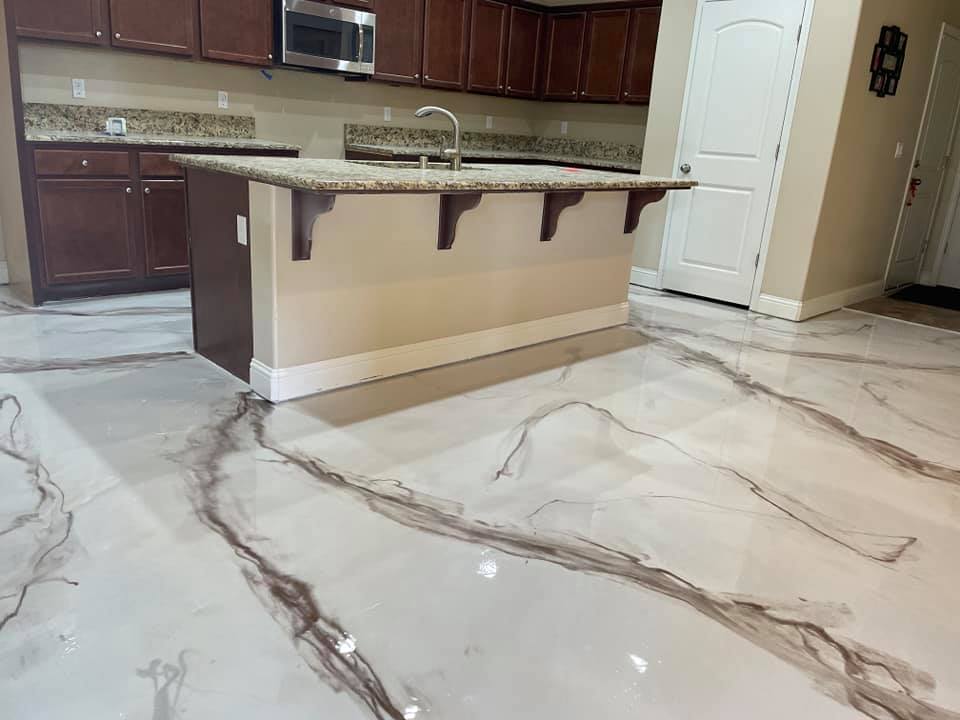
Epoxy Kitchen Floor Concrete Coatings All Year
When you choose epoxy for your kitchen floor, you'll discover that it is incredibly durable. Epoxy flooring is able to stand up to grease spills, home cleaning solutions, toddler messes, and dropped or broken dishes. In your busy home, you'll love that epoxy floor coatings are extremely durable and hold up to rough treatment.

Kitchen Floor Epoxy Coating in Syracuse CNY Creative Coatings
Although Perdure SLE doesn't have the thermal shock resistance of urethane, it's another budget-friendly option for commercial kitchen owners. Here are some advantages to a self-leveling epoxy flooring system: It's low-maintenance. It's chemical-resistant. It's slip-resistant. It comes in zero- or low-VOC options.

Epoxy Kitchen Floor Residential Things In The Kitchen
Everlast® Floor is an epoxy flooring made with an EPA-registered antimicrobial additive to restrict the growth of microorganisms. Other epoxy floors including quartz-filled systems typically use an antimicrobial layer that's only on top. This surface protection, though, can easily be breached by hot oil and harsh detergents—something very.

20+ Epoxy Floor In Kitchen
Dur-A-Flex offers restaurants commercial kitchen flooring that provides chemical and slip resistance, and the durability needed to withstand heat from ovens and fryers. Our commercial flooring designed for restaurants kitchens will also withstand the rigorous cleaning protocols needed to keep commercial kitchens operational.